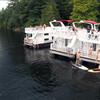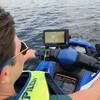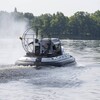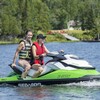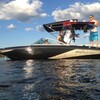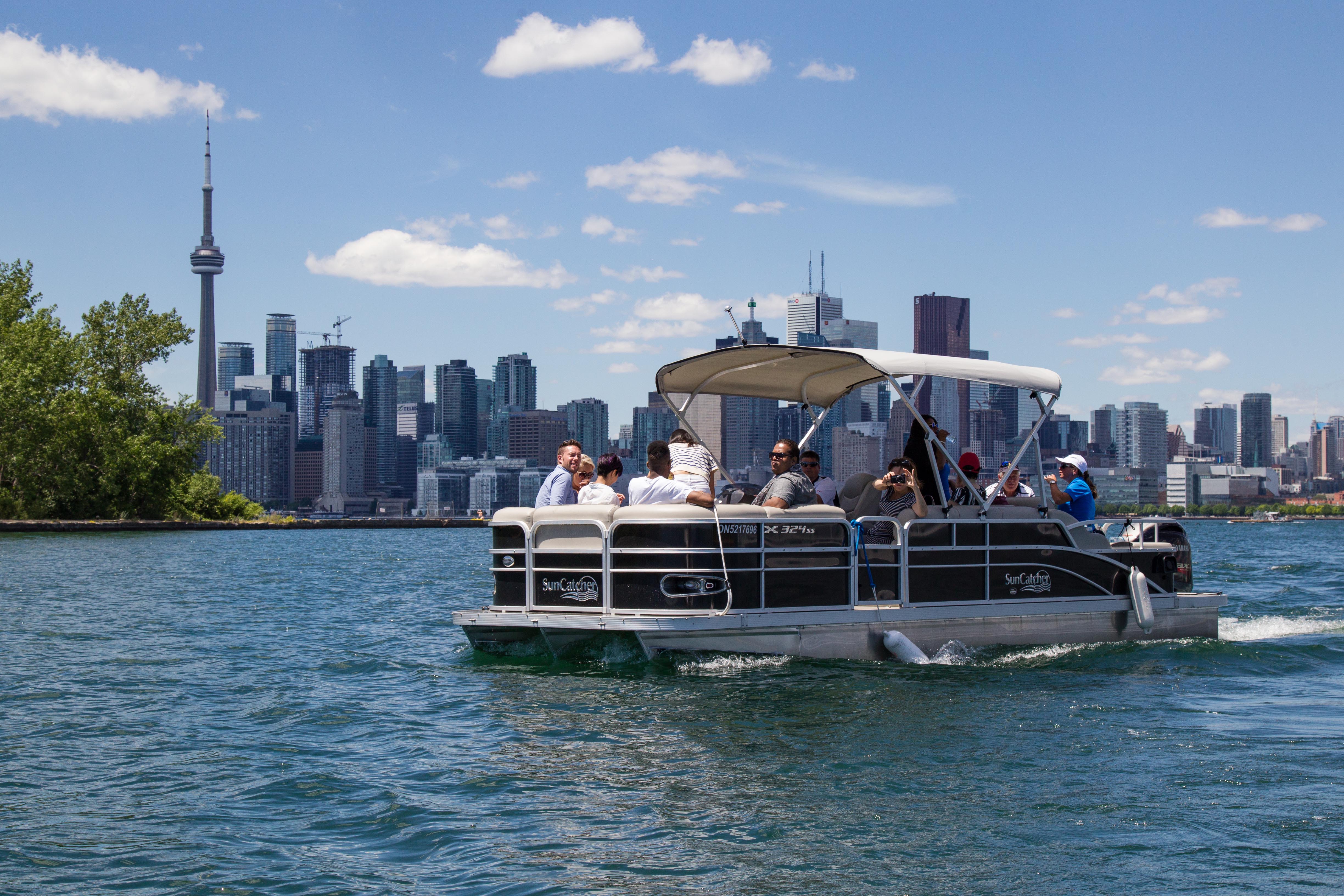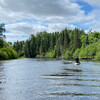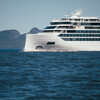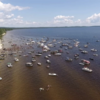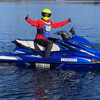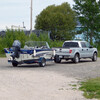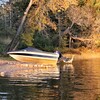
How to Choose a Trailer for your PWC
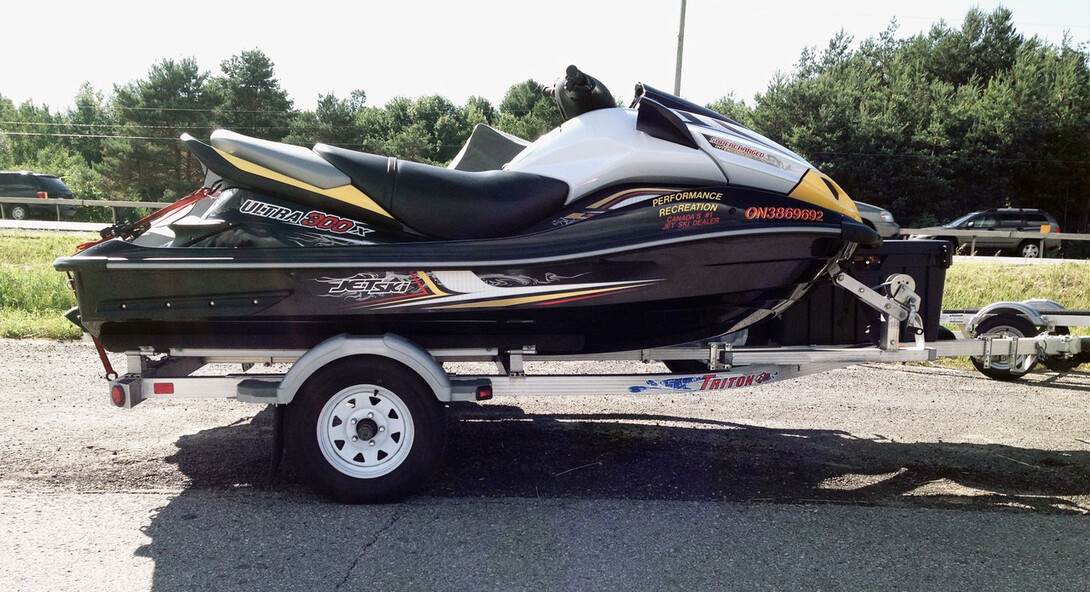
You’ve purchased your PWC and read our beginner's guide. Now you need a trailer to transport your new toy to all those lakes and rivers you want to explore. Trailers come in different sizes and configurations and you want to choose one that meets your needs.
Let’s dig into the important things you need to look for when purchasing your new PWC trailer.
What size trailer do you need for your pwc?
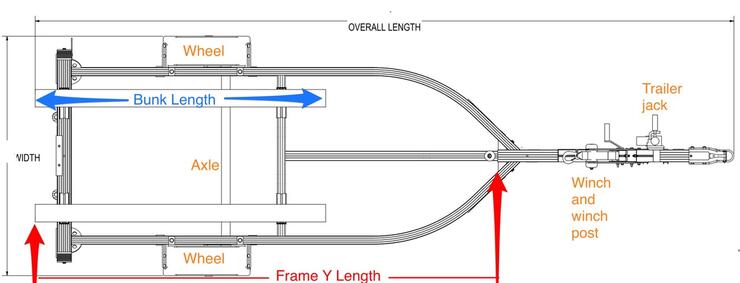
This is dependent on the hull size of PWC you own. Your PWC should fit lengthwise and not hang off the back of the trailer by more than a few inches. Choose a longer trailer with 6-foot bunks if you can. The more of the hull the bunks support, the better. It is a common error for new owners to purchase undersized trailers that are set up incorrectly for your PWC.
You also need to know the maximum weight rating for the trailer and how to set the tongue weight so the trailer rides properly, is stable at speed, and will be controllable during sudden braking and emergency maneuvers. Know the weight of your fully-fueled PWC and if you’re adding a trailer box, estimate that weight including contents. Choose a trailer that is rated for comfortably more than the total load weight. Also, ensure the tow ball size and the trailer coupler size match. The most common is a 2” ball.
Aluminum, Painted, or Galvanized Steel
Aluminum trailers are lighter, long lasting, and cannot rust however they often command a premium price. Painted steel trailers are a good economical choice whether new or used, but they do degrade with rust. Galvanized steel is more rust resistant. All these trailers can be a good choice for towing your PWC so it all comes down to personal preference and budget.
Type of Suspension
PWC trailers come with either Leaf Spring or Torsion Axle suspension. Leaf Spring trailers are less expensive but tend to bounce and rattle behind the tow vehicle especially on uneven road surfaces. Torsion Axle gives the PWC trailer a smooth and quieter ride as it absorbs the impacts from the uneven road surfaces.
Tires


Trailer tires come in wheel sizes from 8 inches to 13 inches. The measurement is taken from the diameter of the rims the tires are mounted on. Special Trailer (ST) tires have a maximum lifespan of 7 years. A spare tire mounted on the trailer has an even shorter life due to not being used. While it may sound counterintuitive, infrequent use ages the tire rubber faster than tires that are in regular road use. When buying a used trailer, look closely at the tires. Ensure that the tires are fairly new with no cracks in the rubber and treads are not worn. Learn to understand the tire sidewall codes and what they mean. Inflate trailer tires to the maximum pressure shown on the sidewall. I recommend replacing all trailer tires after six years from the DOT date code on the sidewall. Also check the wheel bearings for looseness and wear and ensure that they are well greased. The grease inside the hub should look clean, not rusty or dirty. Water inside the wheel hub can cause rust, so keep an eye out for that.
Electrical
Inspect the electrical connector for the trailer lights and wires that feed into it for corrosion or damage. Connect it to the tow vehicle and test the trailer lights. Modern trailers should come with LED lighting, however, there are many older trailers with the classic incandescent lights.
Safety Chains, Winch Straps & Tie Downs
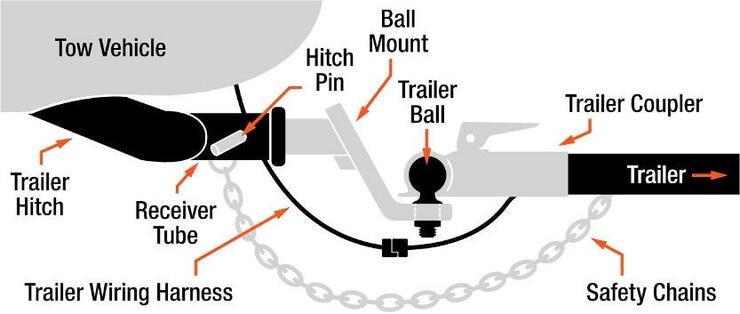
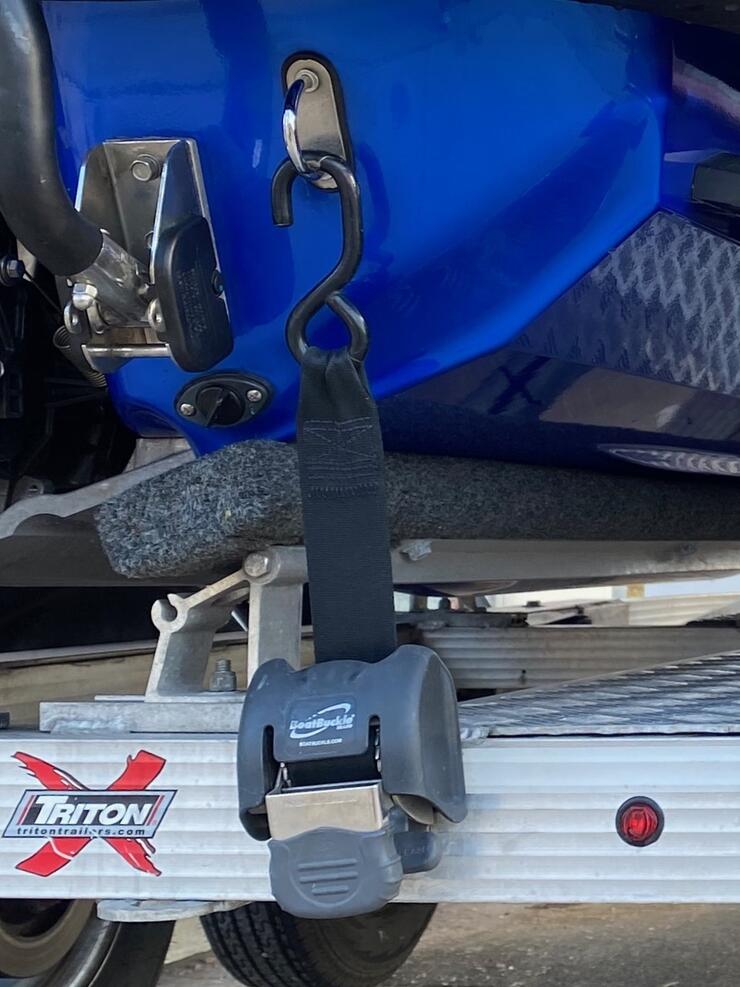
Inspect the safety chains and hooks that connect to the tow vehicle. The chains and clips should be in good working order with no damage. Chain length may need adjustment.
The winch straps are also an important item to inspect. There should be no major sun damage or fraying. If so, these should be replaced before you use them to winch your PWC onto the trailer. A weak winch strap could cause a serious accident if it were to fail. To secure the rear of the PWC to the trailer, many people use straightforward ratchet straps with hooks at each end. These you need to store when you’re out riding your PWC. I personally use and recommend the Boat Buckle G2 (we have the stainless version). It’s a retractable ratchet strap that mounts to the trailer frame. Do not rely on cam-lock straps that depend on friction. Cam-lock straps tend to loosen as the trailer flexes and bounces during tow.
Trailer Jack
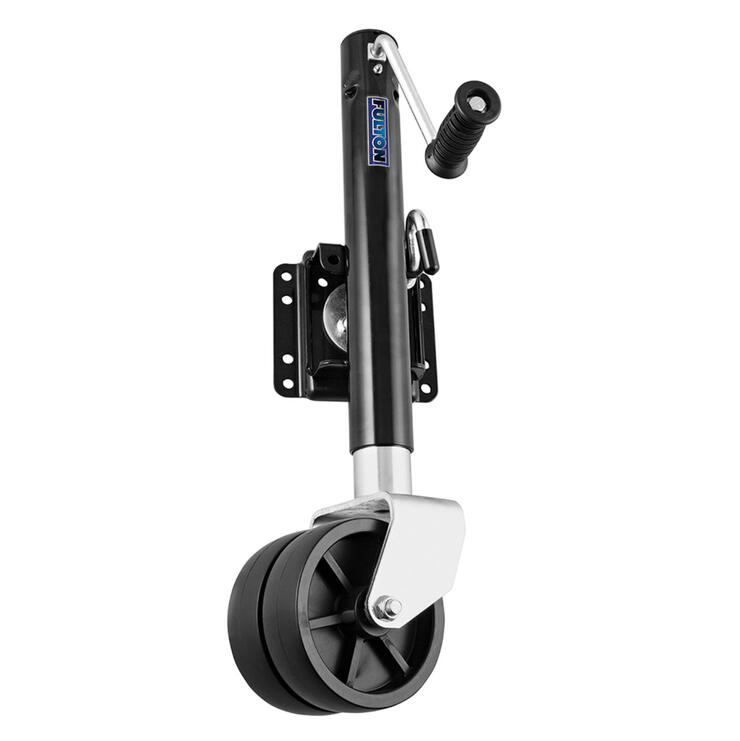
A trailer jack is a good accessory to have on your PWC trailer, typically mounted on the tongue. This third wheel at the front makes moving the trailer around by hand much easier. When the PWC trailer is being towed, the trailer jack rotates lengthwise along the tongue for storage. My personal choice is the Fulton F2 series trailer jack. It’s a double caster jack with a brake and a smooth crank handle to raise and lower the jack. Works well on both single and double trailers. For a basic trailer jack with a single wheel, I suggest placing a wheel ring dock chock under the trailer jack wheel.
Wheel Chocks
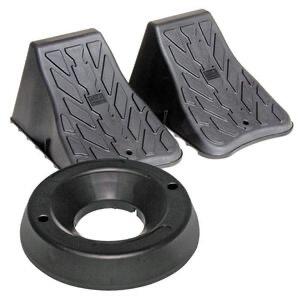
Wheel chocks are important to keep your trailer from rolling on a sloped surface when decoupled and parked. Even a slight grade can cause the trailer to roll if it’s not secured. There are many types of wheel chocks. Compact folding metal ones and larger rubber chocks on a heavy cord are two examples. Place the chock in front and/or behind the wheels depending on which way the grade falls.
Security
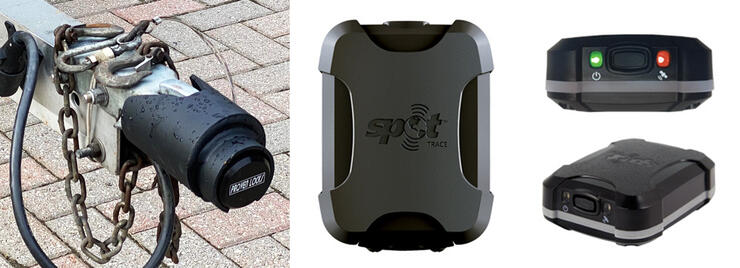
You’ve now got your PWC tied down on a correctly sized trailer, wheels are chocked and you need to park it for a while. How will you secure it? There are a variety of security products and measures you can take. A ball lock, coupler lock and motorcycle cable locks that you thread through the wheels and around the trailer frame are a good start. A locking wheel chock is an option. If your trailer does move without your knowledge, a GPS tracker such as SpotTrace installed in your PWC and perhaps another on your trailer can alert you to unexpected movement. They need to be hidden in an area that is not readily accessible so they can’t be easily removed or disabled by a thief. The device will be able to track where the PWC is and you may have a better chance of getting it back. There are subscription fees for this type of security but it’s a way to recover lost toys. It’s also important to have your trailer and watercraft insured for theft in case you don’t get them back.
Now that you've got the best trailer for your PWC, it's time to hit the road
A trailer is often an afterthought, however it’s an important part of owning a PWC. You need to be able to safely transport your PWC to the places you want to ride and explore—check out our 5 best places to ride your PWC for some ideas. Our PWC packing guide may come in handy, too. Having a good quality trailer that fits your needs makes your PWC life much more enjoyable.
Recommended Articles

6 Ways to Explore the Great Lakes by Boat or Cruise

Discover Northern Ontario's Top Boat Tours

A Guide to Boating the Trent Severn Waterway in Ontario

Boating Events in Ontario: A Complete Guide to Summer 2025

19 Charming Lighthouses to Visit in Northern Ontario
I Boated the Trent Severn Waterway and Here's What It Was Like
I Sailed the New Viking Octantis and Here's What It Was Like

Canadian Canoe Museum

14 PWC Itineraries and Tips for Riding in Ontario

A Thousand Adventures: Boating the 1000 Islands in Ontario
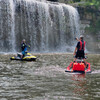
Road Tripping with your PWC
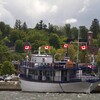
Boat Tours and Cruises in Ontario
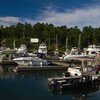
A Guide to Ontario's Marinas

5 Baller Boating Destinations in Ontario
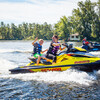
Amazing PWC Getaway
